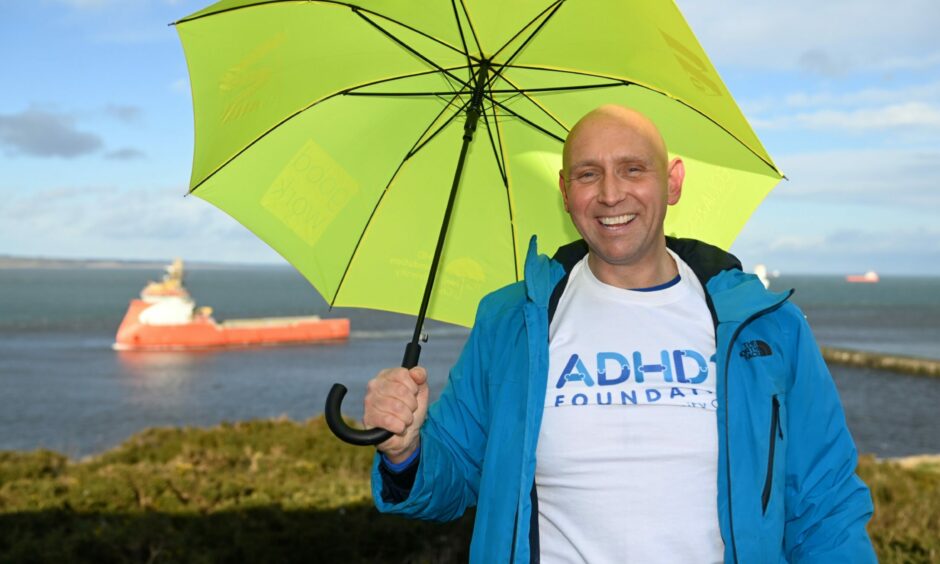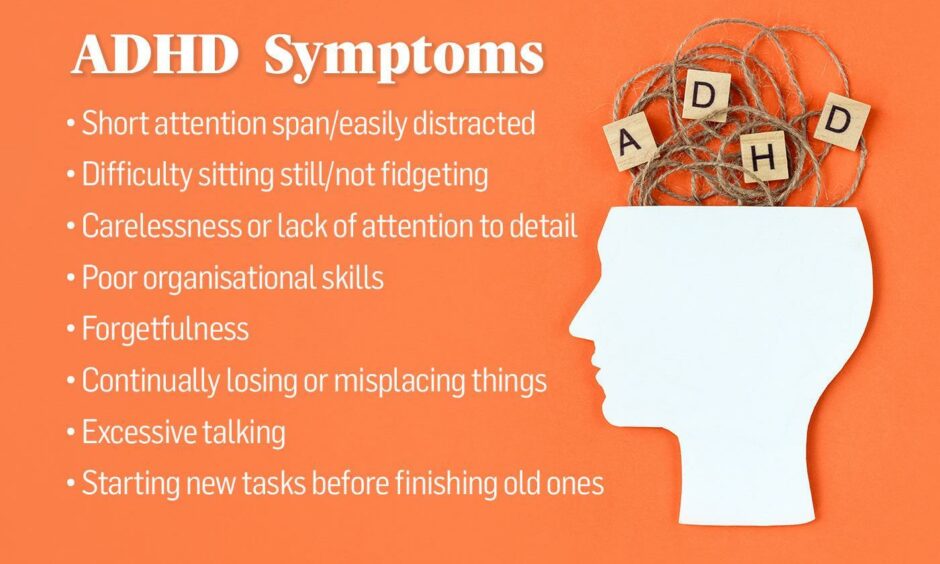Robert Strachan was only recently diagnosed with ADHD, after spending years feeling misunderstood in school, and even quitting his university course.
The 40-year-old remembers being told off for talking in class, or feeling unable to sit still – but it was only during lockdown he received answers as to why.
He’s now aiming to bring more awareness of ADHD to schools throughout Aberdeen, knowing first-hand how challenging an environment it can be.
“I went through all of my education without having a diagnosis,” he said.
“If I’d had support in place and knew how to deal with things, I would’ve had an easier life.
“I was hyper and bouncing all around, I tended to be someone who chats too much, so I did tend to get into trouble quite a lot.”
‘The minute I try to write on a computer, it all goes to pot’
A decade ago Robert, from Torry, was studying physiotherapy at university, but after it became apparent he was going to fail the course, he reached out for support.
“I ended up not passing the course and on the day I had to leave, I went into the educational psychologist and said ‘I’m a mess, I’ve been finding all these problems.’
“He did a basic assessment on me and I found out that I had dysgraphia, which can often be lying in line with ADHD.
“I’m alright at speaking and I can logically talk about things, everything is alright in my brain – but the minute I try to write it on a computer it all goes to pot.
“I start getting stressed, I can’t get things in order that are in my head,” he explained.
‘It’s hard to come to terms with’
However, he didn’t find out he had ADHD for many years later while he considered making a return to education.
Robert said: “I was thinking about going back to do something last year and I picked up that there was still something going on.
“So, I went back to the educational psychologist and he told me ‘You’ve got pretty severe ADHD’.”
When presented with a list of possible symptoms, they discovered Robert had all of them bar two.
And while he’s now on medication to help with his organisation and focus, he admits it’s still “hard to come to terms with”.
‘Gone back to study’
Now, he is getting ready to tackle a gruelling ultramarathon to raise money for the ADHD Foundation’s umbrella project.
In June, organisations across the city will install colourful art displays to raise awareness of neurodiverse conditions, including ADHD.
The funding raised will also provide access for teaching webinars and educational resources when the project.
Robert, who has returned to uni to study psychology, is hoping to generate £5,000 with an ultramarathon – running four miles every four hours for 48 hours.
He hopes an increased knowledge of neurodiversity will mean children in similar positions to him won’t have to “go through life struggling” the way he did.
And he has stressed that often world-leading companies hire people with ADHD for their creative minds, but need to be aware of the “side effects” that come with it.
“All these market leading companies have employed people with ADHD, to push them forward and come up with ideas.
“That’s a lot of the reason they are able to come up with these ideas and make them into a reality.
“There are benefits to it, but it’s then knowing sometimes how to deal with the side effects of it and how to work with your brain.”
Donations to Robert’s fundraiser can be made here
Read more:
Rory Bremner says ADHD is ‘my best friend and my worst enemy’
Parents praise ‘drug-free’ approach to ADHD rolled out in western Scotland



